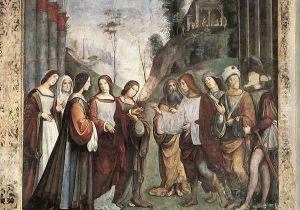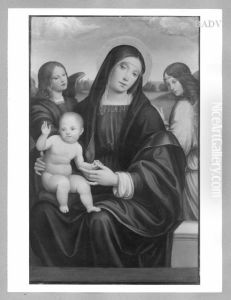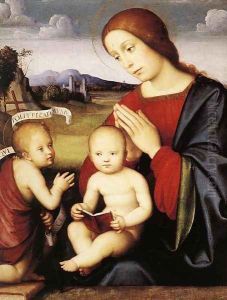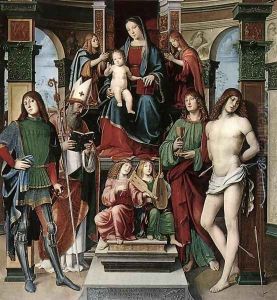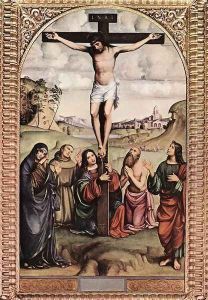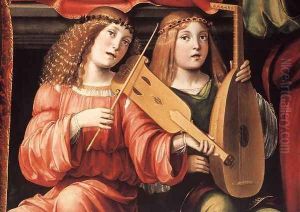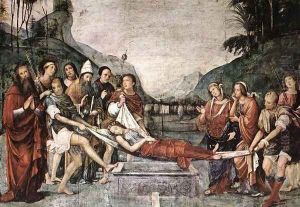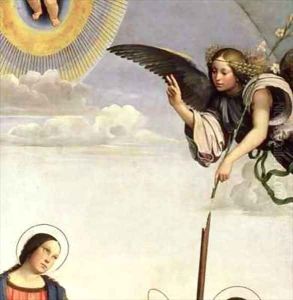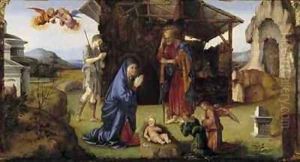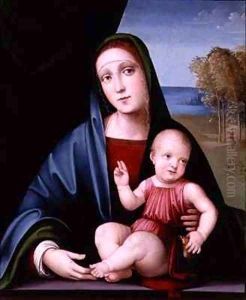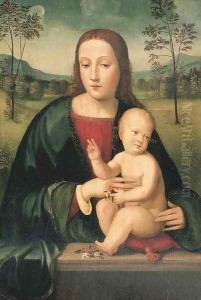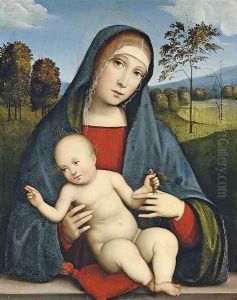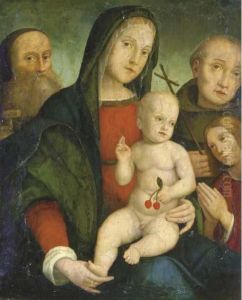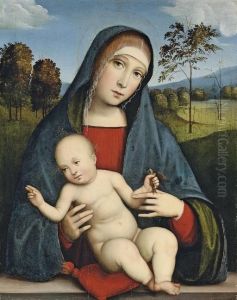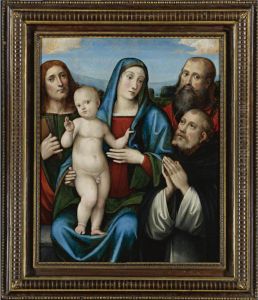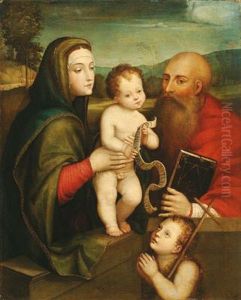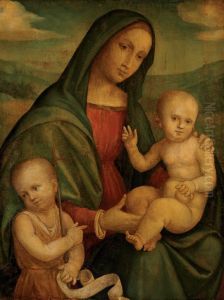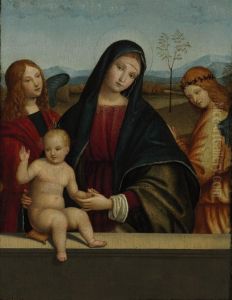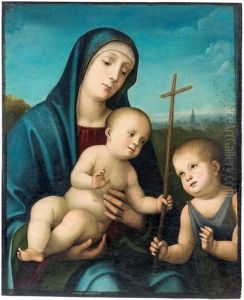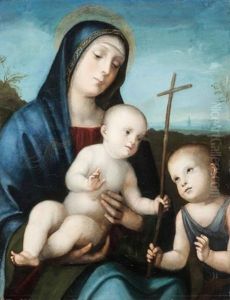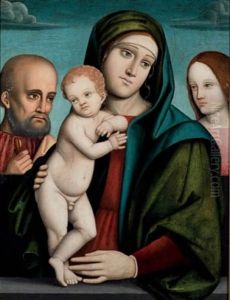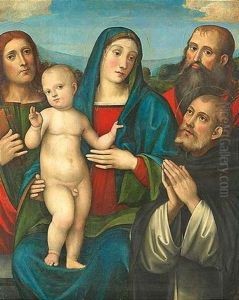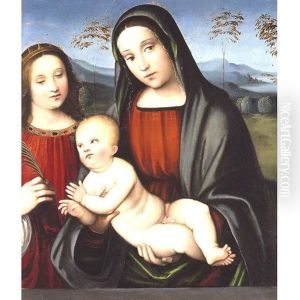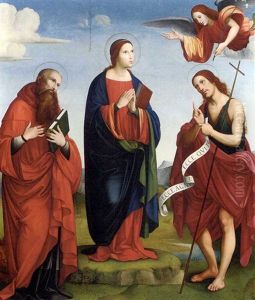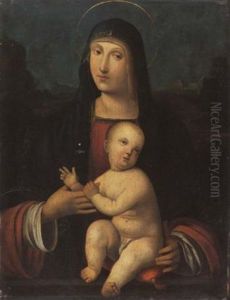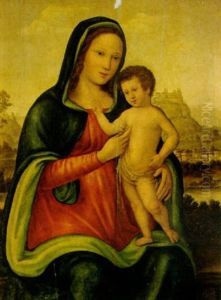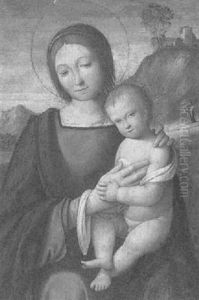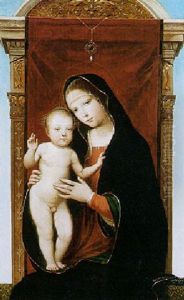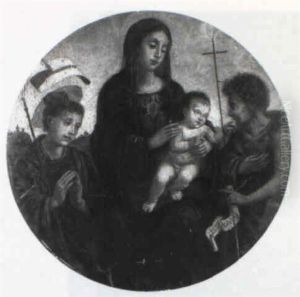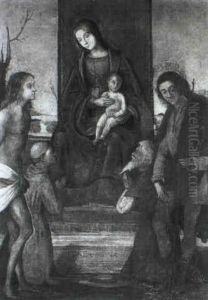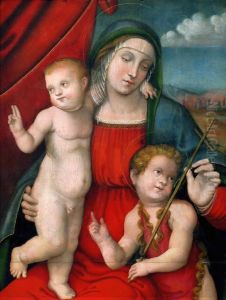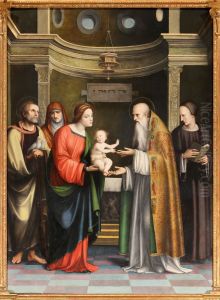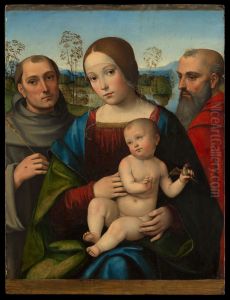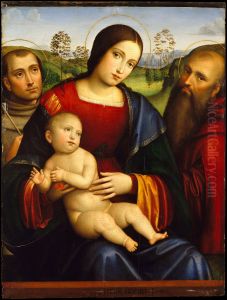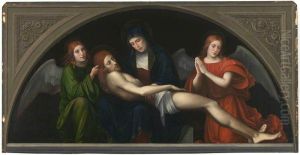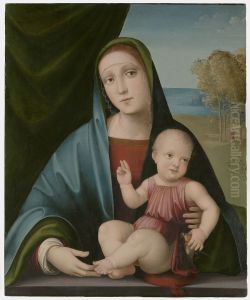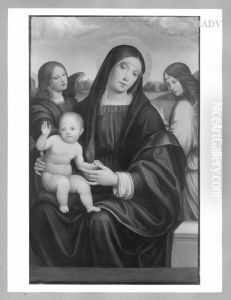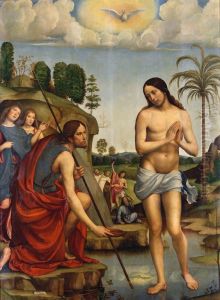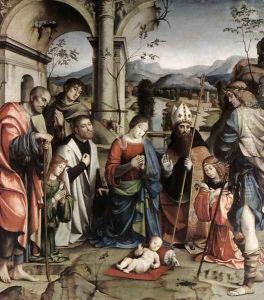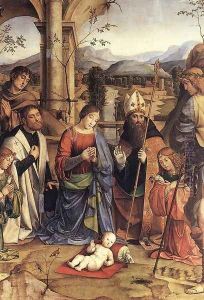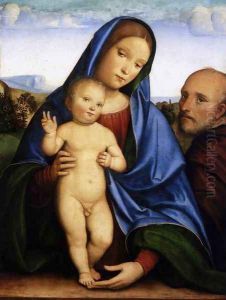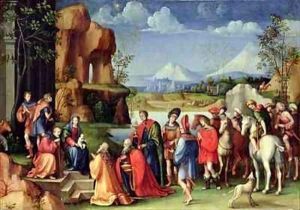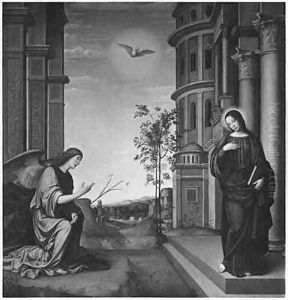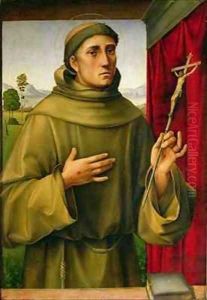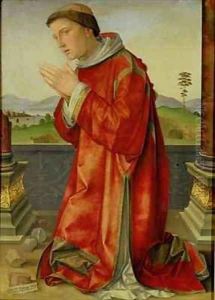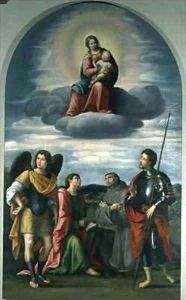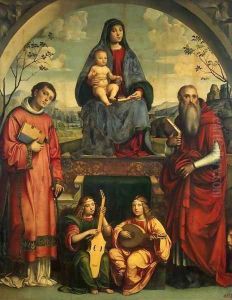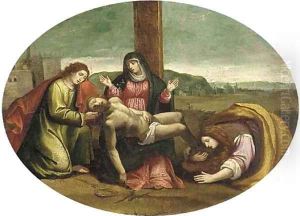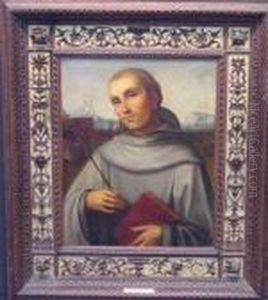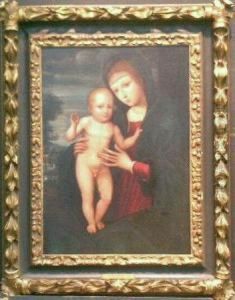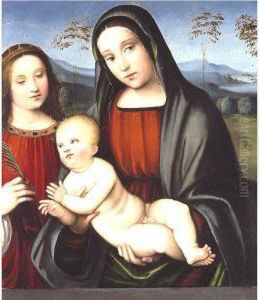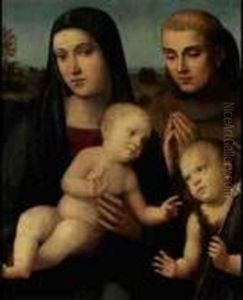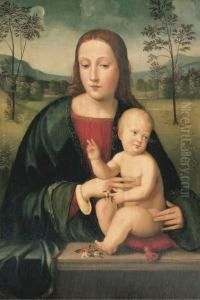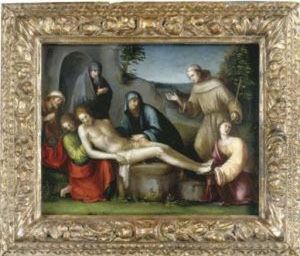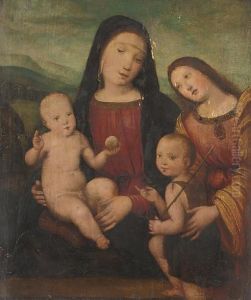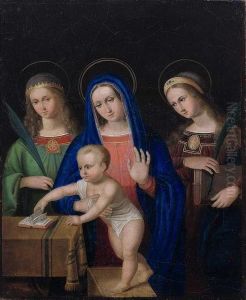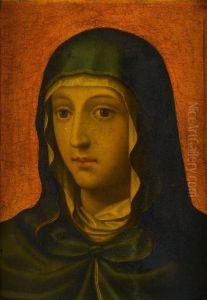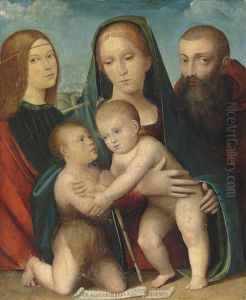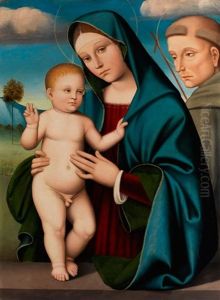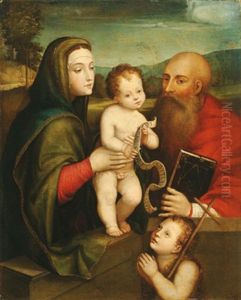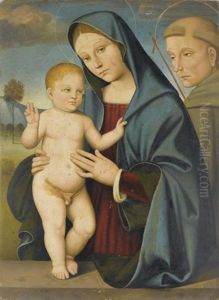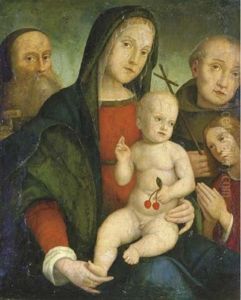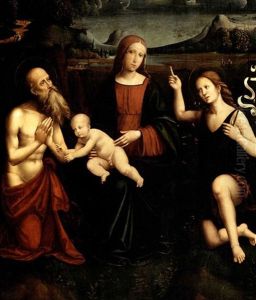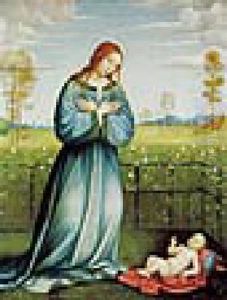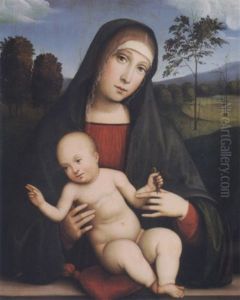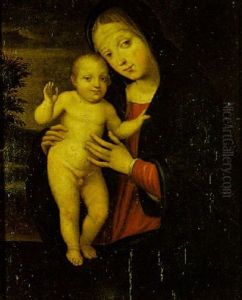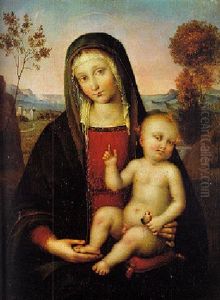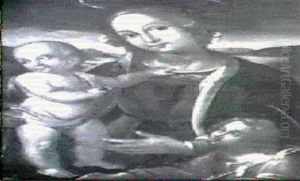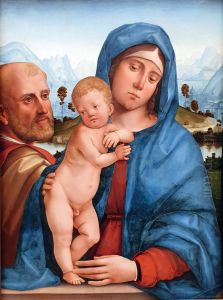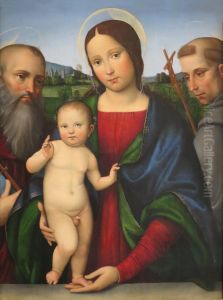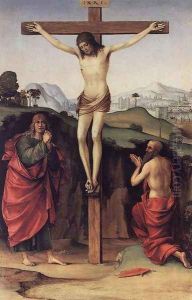Francesco Francia Paintings
Francesco Francia, whose real name was Francesco Raibolini, was an Italian painter, goldsmith, and medalist from the Renaissance period, born in Bologna in 1447. He is often regarded as one of the key figures in the Bolognese school of painting. Francia worked primarily in his hometown of Bologna and was heavily influenced by the Ferrarese school of painters, which included artists such as Lorenzo Costa and Ercole de' Roberti.
Francia's training as a goldsmith and medalist significantly influenced his painting style, which is characterized by its delicate, precise, and refined technique. His works often featured a rich color palette and elaborate decoration, which was a nod to his background in the more precious arts.
In 1483, Francia opened his own workshop in Bologna. He quickly established himself as a prominent artist, and his workshop became one of the most successful in the city. He was not only a painter but also an art dealer, and he ran a large workshop that produced a variety of artworks. Francia was known for his religious paintings, altarpieces, and portraits. His altarpieces, in particular, were famous for their serene and pious figures set against landscape backgrounds, which became a hallmark of his style.
One of his most famous works is the 'Assumption of the Virgin' altarpiece, created for the church of San Frediano in Lucca. His other notable works include the 'Baptism of Christ' and the 'Portrait of Federico Gonzaga as a Child'. Francia's reputation spread beyond Bologna, and his work was commissioned by patrons from other Italian cities and beyond.
Francia was also a teacher, and he had several prominent pupils, including his own sons Giacomo Francia and Giulio Francia, who both became painters. Through his teaching and his workshop, he had a significant influence on the development of the Bolognese school.
Francesco Francia remained active until his death in 1517. His legacy lived on through his sons and his pupils, who continued to propagate his style and influence. Francia's work is appreciated for its grace, devotional quality, and the fusion of Northern European influences with the Italian Renaissance's attention to detail and color.
